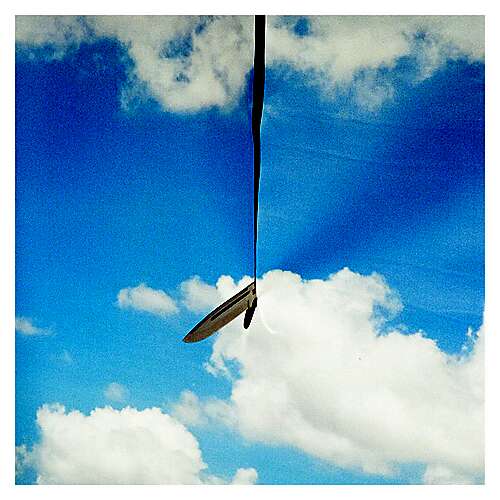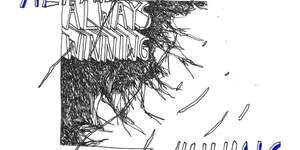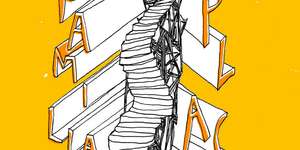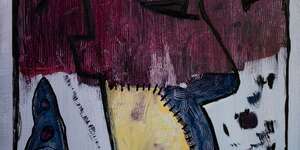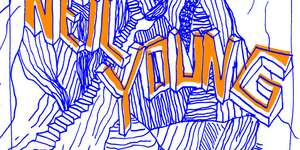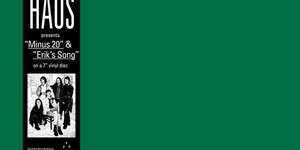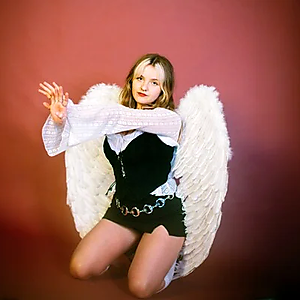Tramhaus
Tramhaus
country: Netherlands
genre: Rock
styles: Post-Punk, Punk, Shoegaze, Garage Punk
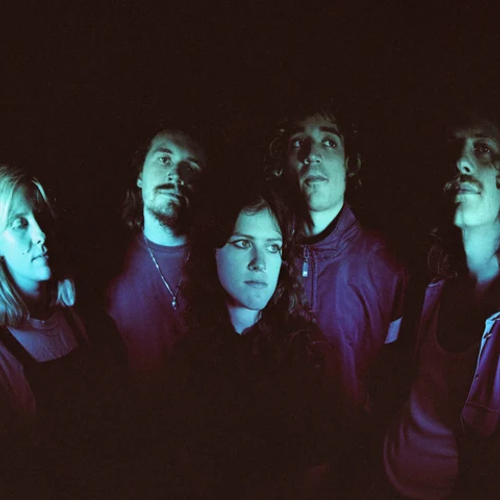
The First Exit debut
 LP
LP
Spotify Bandcamp Soundcloud
Reviews and Comments
[The First Exit] is not just a debut; it’s a statement of intent, a loud declaration that Tramhaus are here to stay and a force to be reckoned with." So Young Magazine
“fun, riotous and extremely, extremely cool.” CRACK Magazine
"a reputed live-juggernaut...barking and sneering with rabid fury." The Needle Drop
“a vortex of catchy noise." The Quietus
"New Banger" NME
[On ‘Once Again’] “an explorative, quizzical prowler of a song” Steve Lamacq, BBC Radio 6Music
“If you have witnessed Tramhaus wreck a stage or two with their proto punk hijinks, you know it’s only a matter of time before they inflict some serious mayhem.” Beats Per Minute
"Tramhaus are content to allow their discontent to tailspin into madness: a maelstrom where words, electricity, pulse and feedback gyrate like a hurricane striking a scrapyard." Under The Radar
“A dark slice of bass driven post punk you can dance to” Louder Than War
Out today (20th September) Rotterdam Post-Punks Tramhaus share long-awaited debut album - 'The First Exit' - via Dutch independent label Subroutine Records
Clocking in at just over 30 minutes, 'The First Exit' delivers a 9-song blast of coruscating punk-rock thrills; fierce, but patently danceable, the music of Tramhaus feels like a soundtrack to a vivacious, mysterious, and dangerous story. There is no room to lean back as the band takes you with them in a drag race full of emotions and euphoria driven by streamlined, fiery songs mixed with fragile and abstract tones.
It's also the most accurate realisation yet of their furious live-shows, which has seen the band perform all over the world since forming in 2021, rapidly making them "a word-of-mouth live sensation" (The Needle Drop). Chalking up multiple EU/UK wide tours, eight shows at SXSW, a seven-date tour of Japan, the band can also boast performances at practically every major European showcase festival going (The Great Escape, Reeperbahn, Eurosonic et al).
Garnering critical press/radio acclaim in the UK and the U.S, Tramhaus have won multiple plays on BBC Radio 6 Music (Steve Lamacq, Deb Grant), KEXP ("Track of The day") and Radio X (John Kennedy), in addition to widespread press backing from The Quietus, CRACK, NME, The Line of Best Fit, So Young Magazine, Rough Trade, The Needle Drop, Under The Radar and Beats Per Minute.
To mark the album's release, the band embark on the biggest headline tour-to-date from October, spanning 28 dates in 10 countries (including a UK stint in November), commencing at their biggest Dutch headline at Amsterdam's iconic Paradiso.
Speaking about the album, guitarist Micha Zaat states:
“Suffice to say, we are immensely proud of this thing we birthed called ‘The First Exit’. One might even say it is our magnum opus up until this point. Anyway, expect a lot, expect dissonance and twisted dreams, personal stories and introspective contemplation. Truly a product of the ethos of a postmodern world.”
Popular music “makes” emotion. You can argue it is an instrument of enlightenment as well as entertainment. The artform has certainly driven some mad over time, like Horkheimer and Adorno, who used the metaphor of the ultimate boho trickster, Odysseus, lashed to the mast of his own ship, to inch their way towards an understanding of mass (musical) culture. Despite their best efforts - and to misquote David Byrne - they’d only gotten half way there. Pop music gave a sigh and replied, quoting Arthur Seaton. “Whatever people say I am, that's what I'm not.”
Great pop music also often sounds like lots of other pop music, and just itself: all at once. This is certainly true of The First Exit, the debut album from young Rotterdam rock band Tramhaus. The album can remind one at times of other wonderful instances of manufactured noise, from the likes of Pixies, Joy Division, Fat White Family and Nirvana. Not that Tramhaus are like any of these acts. The Rotterdammers have forged their own collective creative identity, born of long hours on tour and in the studio, and working and being together, as a tight-knit set of friends.
The First Exit is certainly a reflection of the band’s collective attitude and attendant work ethic that has seen the release of six singles in eighteen months. But it is also a break with the past through a form of fusion with the present: the mission to capture their titanic live sound in a studio setting.
The place chosen for this instance of manufactured shamanism was Katzwijm Studios in Voorhout, an old converted bulbshed in the Bollenstreek, the flower growing region of the southern Netherlands. Katzwijm has shaped the sound of many alternative Dutch acts over the last decade, and its intimate spaces and no-nonsense, collaborative reputation suited the band perfectly. Studio engineer Floyd Atema found himself behind the controls. Guitarist Micha Zaat: “Floyd’s guidance gave wings to this album. His talent for gently yet firmly insisting on trying one more take is what you need when you're an artist locked up in a former bulbshed!” Songs were endlessly tweaked before recording, in order to keep focus and capture the kind of one-take spontaneity the band have built their reputation on. According to Zaat, any “irrelevant distractions from the real deal” were kept at arm’s length.
The First Exit starts at a tremendous lick. Opener ‘The Cause’ kicks off with a muffled drum fill that reminds one of ‘Disorder’ by Joy Division, and there all similarities end. “Seems like everyone is blind!” screams Lukas Jansen over the top of some jet-propelled guitar work. “Do you really wanna go where the others all go?” replies lead guitarist Nadya van Osnabrugge to Jansen, and, by implication, us too. ‘What are they on about?’ we ask ourselves. Whatever it is, it's important. And there it is, Tramhaus’s key card, slapped down right at the beginning: their happy knack of creating a sense of mystery and burning emergency. This simple, tough, track also knows when to hold back, to regroup for a final assault; the great drop off in pressure thanks to the workings of a canny rhythm section. From then on the steady clang of the guitars invoke a machine press, the scraping “tick-tick” of the strings counting Jansen in, so he can charge forth again.
The second track, ‘Once Again’, gives us the flip side of the band’s psyche - a Hamlet-like sardonic melancholy. The indolent vocal line is set over a sparsely furnished, though well constructed song that is happy to pootle along until van Nadya Osnabrugge’s guitar calls the other instruments to order with a ringing tone. Suddenly, with Nadya adding a backing vocal, Jansen screams out his message at his most feral. And then it’s over; the bass brings matters back down and it feels as if the track has magicked itself out of existence, like a teenager escaping a family gathering. This sonic escape act is something we hear elsewhere on the record.
Lead single ‘Beech’ is initially built around a simple repeated riff that supports a set of deadpan, somewhat gnomic lyrics. These can’t fail to get under your skin. “A prisoner, a clown / And a bar in town with a name referring to a tree.” What? Well, that’s part of the deal with Tramhaus, something’s up, in a specific place and time, but we don’t know yet, so we have to stick with the song to find out. (Oh, yeah… the way Jansen sets out matters could have older humans remembering Pixies in their prime, too.) We don't get to listen to Jansen’s tale for too long though. Tension is invoked by the almost savage contrast between loud and quiet, courtesy of a huge chorus, aided by a mix of coruscating lead guitar lines that feel hot to the touch, and balanced by clever interjections from the second guitar. It’s the sort of chilling accord that great twin guitar attacks should possess. This mid-tone snarl up is supported by a fabulous ticking rhythm and rumbling bass line that always feels interested in what’s going on. Not wanting to be left out, Jansen’s screaming vocals literally slide down towards us like a kid tumbling down a water chute in an amusement park. It’s a fabulous single of the old school.
The grooviness of ‘Beech’ allows ‘A Necessity’ to come swaggering towards us like it’s trying to sell us a timeshare, or bitcoin. Again, the lyrics have you hooked. “Thanks for putting in all the work,” or, “Redefining gravity / I've been living like someone else, yeah.” Talk about message oblique speech. These lines are propped up by a bubbling rhythm section that lays down an itchy take on funk. Soon, a killer guitar riff that sounds like a bugle call for reveille turns up and Jansen carries on his an angry treatise. “At least we are walking with pride / if you want to know why.” There’s a lot to unpack, but nothing is overdone, and, naturally, everything is amped to the max. Again, it’s a track that - in that pesky modern, arm's length manner - decides to quickly scarper before it has to explain itself.
With ‘Semiotics’ Jansen croaks out his lines in his best bedroom manner: we could think it’s some bordello spat unfolding, the sort of thing Fat White Family and Gallon Drunk would invoke. The guitar lines suddenly switch from cruising to crushing mode; and again lead us through the lurid noire of the song, like Ariadne’s thread. Yet another instance of the “Tramhaus challenge”: where and when, in this shadowplay, do we strap ourselves in? At once very clear in emotion, sometimes opaque in meaning, the scenarios the band invoke are akin to murals; ones smeared on the wall in thick impasto. And guess what, ‘Semiotics’ grabs its coat and does one, before you’ve decoded it.
As mentioned at the beginning, Tramhaus’s music can remind you of lots of things that only confirm the fact they sound like no one but themselves. ‘Worthwhile’ is akin to Prometheus nicking Zeus’s lighter. ‘Day of The Lords’? ‘Teen Spirit’? Why not all at once, which is what we get. The dryness of the track, its unashamedness in plucking the riffs back from the aforementioned titans - like someone rifling through your coat pockets in the club cloakroom - and the fact it won’t get out of your face (despite travelling at a steady 1 km/ph, just like Roky Erikson did) all serve to endear. That it’s by far the longest track on the record is another cause to rejoice.
Two great pop tracks follow to reset the controls. Firstly, ‘The Big Blowout’ is a hot and restless travelogue driven by a bouncing beat and intermittent jets of white noise from the twin guitar attack. Again there is a sense of unquiet conjured up by the marriage of red hot guitars and Jansen’s total commitment. A great quick ending, too. Tramhaus are truly masters of escape.
The stomping ‘Ffleur Hari’ boasts one of the band’s trademark one liners that demands you know more: “He always has been a dreamer” sets up another emergency, this time a relentless stomp that creates the ground for a set of cavernous guitar lines that now and again echo Will Sergeant at his most ironclad. Simple, but very effective Stuff. It’s worth noting that the beat on The First Exit is very fluid and inventive throughout, essentially reactive with no real formulaic tempo or pattern. Jim Luiten’s stick work, and the complimenting bass lines from Julia Vroegh give the songs a real sense of urgency and interest.
All good things come to an end: ‘Past Me’ boasts another incredibly catchy guitar riff, this time vocals are taken by Nadya van Osnabrugge, before Jansen comes in to initially duet and add a shouted warning that “it’s getting harder to stay sane”. Some lines are phrased as challenges to an imaginary opponent: “Confidence, ah, forget about it”. ‘Past Me’ is the nearest they come to writing a pop song. It’s the sort of music that draws a line in the sand that you, the listener, are desperate to jump over.
Like a number of classic records, The First Exit clocks in at just over the half hour mark. But so what? This debut is a quest document, filled with stories that bewitch, unsettle, and excite. The listener will need a while to unpack such a rich and exciting record and bask in its fiery afterglow. Repeated listening is recommended.
To totally misquote the Alexandrian poet, Cavafy, what a journey
latest releases




